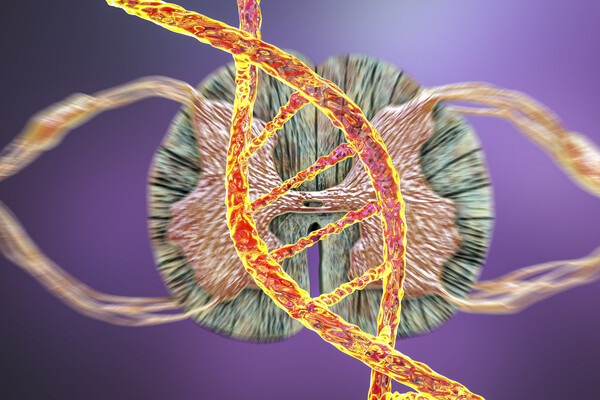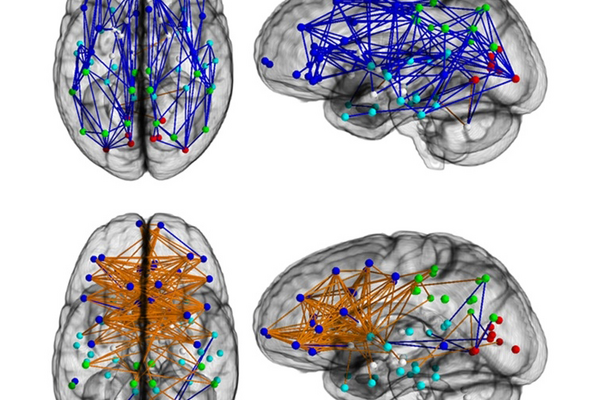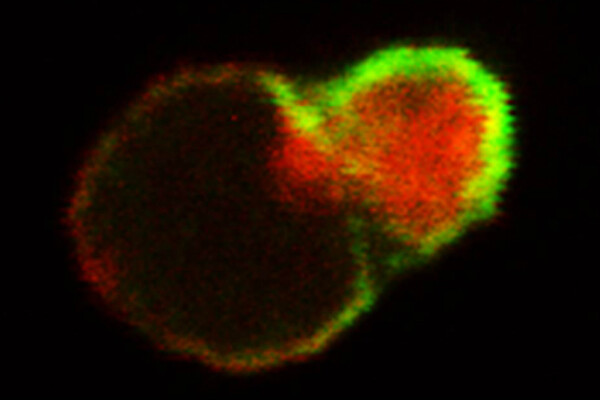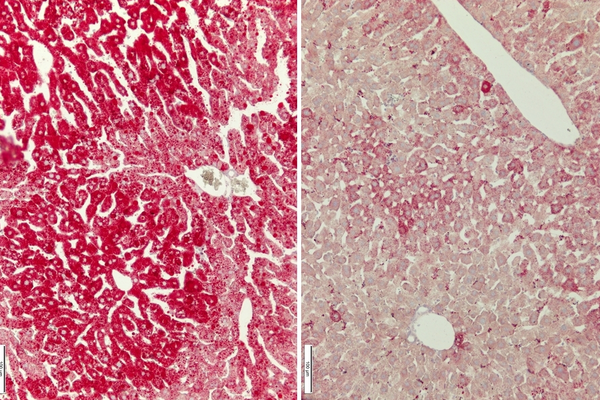5/18
Health Sciences
Penn Medicine: Brain Connectivity Study Reveals Striking Differences Between Men and Women
A new brain connectivity study from Penn Medicine published today in the Proceedings of National Academy of Sciences found striking differences in the neural wiring of men and women that’s lending credence to some commonly-held beliefs about their behavior.
Penn Medicine Study Examines Use of Yoga to Lessen Side Effects of Prostate Cancer Treatment
A new, first-of-its-kind study by researchers at the Perelman School of Medicine at the University of Pennsylvania seeks to learn whether men with prostate cancer who are undergoing radiation therapy can benefit from yoga.
Memories Are ‘Geotagged’ With Spatial Information, Penn Researchers Say
Using a video game in which people navigate through a virtual town delivering objects to specific locations, a team of neuroscientists from the University of Pennsylvania and Freiburg University has discovered how brain cells that encode spatial information form “geotags” for specific memories and are activated immediately before those memories are recalled.
Five Penn Faculty Earn Distinction as AAAS Fellows
Five faculty members from the University of Pennsylvania have been named fellows of the American Association for the Advancement of Science.
Researchers at Penn Uncover Mechanism Behind Blood Stem Cells’ Longevity
The blood stem cells that live in bone marrow are at the top of a complex family tree. Such stem cells split and divide down various pathways that ultimately produce red cells, white cells and platelets.
Penn Medicine: Increasing the Number of Insured Patients is Not Tied to Higher ICU Usage in Massachusetts
A multi-institution study led by researchers at the Perelman School of Medicine at the University of Pennsylvania has found that increasing the number of insured patients is not associated with higher intensive care unit (ICU) usage in Massachusetts.
Penn Alumna Meghan Hussey Awarded George J. Mitchell Scholarship
Meghan Hussey, a 2012 University of Pennsylvania graduate, is one of 12 Americans selected to receive a George J. Mitchell Scholarship for graduate studies in Ireland or Northern Ireland.
Epigenetic Changes May Explain Chronic Kidney Disease, Penn Study Shows
The research of physician-scientist Katalin Susztak, MD, PhD, associate professor of Medicine in the Renal Electrolyte and Hypertension Division, at the Perelman School of Medicine, University of Pennsylvania, strives to understand the molecular roots an
Penn Medicine: Paths Not Taken: Notch Signaling Pathway Keeps Immature T Cells on the Right Track
The lab of Avinash Bhandoola, PhD, professor of Pathology and Laboratory Medicine, has studied the origins of T cells for many years. One protein called Notch, which has well-known roles in the development of multiple tissues, plays an essential role in triggering T-cell development.
Penn Medicine: Targets of Anticancer Drugs Have Broader Functions than What Their Name Suggests
Drugs that inhibit the activity of enzymes called histone deacetylases (HDACs) are being widely developed for treating cancer and other diseases, with two already on the market. Researchers at the Perelman School of Medicine, University of Pennsylvania, show that a major HDAC still functions in mice even when its enzyme activity is abolished, suggesting that the beneficial effects of HDAC inhibitors may not actually be through inhibiting HDAC activity, and thus warranting the reassessment of the molecular targets of this class of drugs.
In the News
What’s going on with tranq?
Jeanmarie Perron of the Perelman School of Medicine says that the appearance and progression of skin ulcers and tissue loss on xylazine users is different than with other intravenous drugs.
FULL STORY →
It’s time to end the Medicare-Medicaid merry-go-round
In an opinion essay, Rachel M. Werner of the Leonard Davis Institute, Wharton School, and Perelman School of Medicine says that Medicare and Medicaid fail to integrate coverage and coordinate care across their two plans.
FULL STORY →
The quest for treatments to keep weight off after Ozempic
Researchers at Penn are conducting a co-authored study of the brains, fat and muscle cells, and eating patterns of people trying to maintain new body sizes.
FULL STORY →
Inside Penn’s transfer center
Penn Medicine’s transfer command center gets patients from affiliated hospitals and hospitals outside Philadelphia to specialized care that can save lives, with comments from CEO Kevin Mahoney.
FULL STORY →
Operating rooms are major sources of greenhouse gasses. Penn is eliminating a form of anesthesia that hangs in the air for more than a decade after use
Penn Medicine is phasing out the anesthesia desflurane at four of its six hospitals to eliminate harmful greenhouse gases, with remarks from Greg Evans.
FULL STORY →











